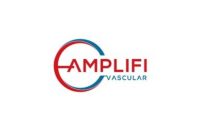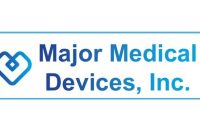– CGuard™ Carotid Stent will now be a treatment option in the stenting plus medical therapy arm of the trial for patients –
– CREST-2 Trial is sponsored by the National Institute of Neurological Disorders and Stroke (NINDS) and actively engaged at more than 140 study locations –
TEL AVIV, Israel, Feb. 28, 2022 (GLOBE NEWSWIRE) — InspireMD, Inc. (Nasdaq: NSPR), a global developer of the CGuard™ Embolic Prevention Stent System (EPS) device for the treatment of Carotid Artery Disease and stroke prevention, today announced its CGuard Carotid Stent, utilizing its proprietary MicroNet mesh, will be included as a device option for stenting in the CREST-2 Trial. Following the approval of the Carotid Revascularization Endarterectomy or Stenting Trial (CREST-2) Investigational Device Exemption (IDE) supplement application from the U.S. Food and Drug Administration (FDA) last week, InspireMD will be evaluating strategic sites to enable expediated access.
Marvin Slosman, Chief Executive Officer of InspireMD commented, “This approval for use of CGuard EPS in a trial as significant as CREST-2 is proxy to the validation of our technology platform, contributing to this important work. The CREST-2 Trial is widely acknowledged as the most significant ongoing trial to scientifically investigate the optimal course of treatment to prevent stokes for asymptomatic patients with significant carotid disease. The opportunity to be a part of CREST-2 is a tremendous milestone for our company, and we look forward to CGuard playing an important role in the stenting results,” Mr. Slosman added.
The study first enrolled patients in 2014, as two parallel multi-center randomized, observer-blinded endpoint clinical trials with the purpose of being to determine the best way to prevent strokes in patients with high grade carotid stenosis but no stroke symptoms related to that blockage. The trial will enroll an estimated 2,480 participants which will remain in the study for 4 years following the start of intervention.
“The CREST-2 Executive Committee is keenly focused on positioning the results of the trial to be relevant, actionable, and informative to contemporary practices,” said Dr. Thomas Brott, Principal Investigator of the NINDS sponsored trial. “Over the course of the trial we have continually introduced state of the art medical, pharmacological therapies to reduce the risk of stroke in our randomized patient population. It is critical of any long-term study to remain aligned with evolving technology and relevant devices. After examining the extensive clinical experience with the CGuard stent and the large body of evidence to its effectiveness, the study executive committee felt it appropriate to include this stent as a treatment option. Patients that agree to participate in the CREST-2 Trial, depending on accessibility and operator training and discretion, will now have access to this state of the art, carotid stent device.”
About Carotid Revascularization and Medical Management for Asymptomatic Carotid Stenosis Trial (CREST-2)
CREST-2 is two independent, parallel, multicenter, randomized controlled trials of carotid revascularization and intensive medical management versus medical management alone in patients with asymptomatic high-grade carotid stenosis. One trial randomizes patients in a 1:1 ratio to endarterectomy versus no endarterectomy and another randomizes patients in a 1:1 ratio to carotid stenting with embolic protection versus no stenting. Medical management is uniform for all randomized treatment groups and is centrally directed. The purpose of this trial is to determine the best way to prevent strokes in people who have a high amount of blockage of their carotid artery, but no stroke symptoms related to that blockage.
The trial is being conducted in the United States, Canada, Spain, Israel, and Australia by physicians carefully selected on their ability to perform revascularization at low risk. Another key component of the trial is that important stroke risk factors, including hypertension, diabetes, high cholesterol, cigarette smoking, physical activity, and diet are managed intensively. The trial will enroll an estimated 2,480 participants who will remain in the study for 4 years following the start of intervention/treatment. Clinical Trial Identifier: NCT02089217
For additional information please visit www.ClinicalTrials.gov
About InspireMD, Inc.
InspireMD seeks to utilize its proprietary MicroNet® technology to make its products the industry standard for carotid stenting by providing outstanding acute results and durable, stroke-free, long-term outcomes. InspireMD’s common stock is quoted on the Nasdaq under the ticker symbol NSPR, and certain warrants are quoted on the Nasdaq under the symbol NSPRZ.
For more information, please visit www.inspiremd.com.
Forward-looking Statements
This press release contains “forward-looking statements.” Such statements may be preceded by the words “intends,” “may,” “will,” “plans,” “expects,” “anticipates,” “projects,” “predicts,” “estimates,” “aims,” “believes,” “hopes,” “potential”, “scheduled” or similar words. Forward-looking statements are not guarantees of future performance, are based on certain assumptions and are subject to various known and unknown risks and uncertainties, many of which are beyond the company’s control, and cannot be predicted or quantified and consequently, actual results may differ materially from those expressed or implied by such forward-looking statements. For example, the company is using forward looking statements when it discusses the belief that the approval for use of CGuard EPS in the CREST-2 trial is proxy to the validation of its technology platform and the expected enrollment of patients in the trial. Such risks and uncertainties include, without limitation, risks and uncertainties associated with (i) market acceptance of our existing and new products, (ii) negative clinical trial results or lengthy product delays in key markets, (iii) an inability to secure regulatory approvals for the sale of our products, (iv) intense competition in the medical device industry from much larger, multinational companies, (v) product liability claims, (vi) product malfunctions, (vii) our limited manufacturing capabilities and reliance on subcontractors for assistance, (viii) insufficient or inadequate reimbursement by governmental and other third party payers for our products, (ix) our efforts to successfully obtain and maintain intellectual property protection covering our products, which may not be successful, (x) legislative or regulatory reform of the healthcare system in both the U.S. and foreign jurisdictions, (xi) our reliance on single suppliers for certain product components, (xii) the fact that we will need to raise additional capital to meet our business requirements in the future and that such capital raising may be costly, dilutive or difficult to obtain and (xiii) the fact that we conduct business in multiple foreign jurisdictions, exposing us to foreign currency exchange rate fluctuations, logistical and communications challenges, burdens and costs of compliance with foreign laws and political and economic instability in each jurisdiction. More detailed information about the Company and the risk factors that may affect the realization of forward-looking statements is set forth in the Company’s filings with the Securities and Exchange Commission (SEC), including the Company’s Annual Report on Form 10-K and its Quarterly Reports on Form 10-Q. Investors and security holders are urged to read these documents free of charge on the SEC’s web site at http://www.sec.gov. The Company assumes no obligation to publicly update or revise its forward-looking statements as a result of new information, future events or otherwise.
Investor Contacts:
Craig Shore
Chief Financial Officer
InspireMD, Inc.
888-776-6804
craigs@inspiremd.com
Chuck Padala, Managing Director
LifeSci Advisors
646-627-8390
chuck@lifesciadvisors.com






